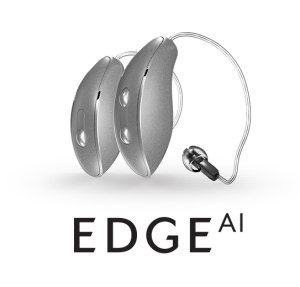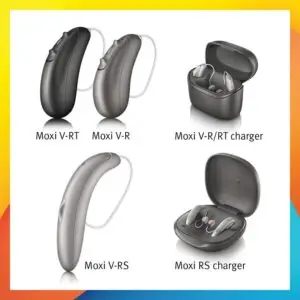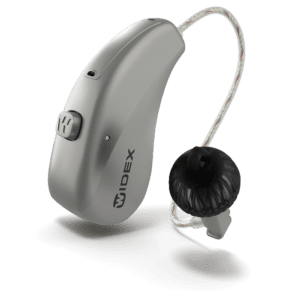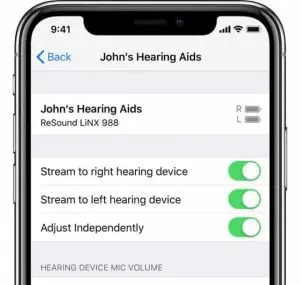The Future of Hearing Aids: Commodity Status with Essential Service
In recent years, hearing aids have undergone a significant transformation, evolving from niche medical devices to consumer-friendly products. This evolution is largely driven by advances in technology, changes in regulatory frameworks, and shifts in consumer expectations. As a result, hearing aids are becoming more of a commodity. However, this shift does not diminish the importance of innovative hearing care and professional audiological services. On the contrary, the role of service in ensuring the efficacy and satisfaction of hearing aid users is more crucial than ever.
*Reading this detailed presentation of information below reveals the challenges facing hearing care providers today, but rest assured, a solution awaits at the end.
I. The Commoditization of Hearing Aids
Technological Advancements:
The rapid pace of technological innovation has significantly reduced the cost of production for hearing aids. Therefore, making them more accessible to a broader audience. Modern hearing aids are equipped with advanced features such as Bluetooth connectivity, noise reduction, and AI-driven sound adjustments, which enhance user experience and adaptability. Companies like Sony, Sennheiser, and new entrants like Linner and Elehear are driving competition, leading to a wider variety of products at different price points.
Regulatory Changes:
In many countries, regulatory changes have opened up the market for over-the-counter (OTC) hearing aids. This shift allows consumers to purchase hearing aids without a prescription, increasing accessibility and affordability. The FDA’s approval of OTC hearing aids in the United States, for instance, has democratized access to these devices. Thus, allowing people to address mild to moderate hearing loss without the need for a medical consultation.
Consumer Demand:
With an aging population and greater awareness of hearing health, the demand for hearing aids is on the rise. Consumers today are more informed and expect high-quality products that integrate seamlessly with their lifestyle. The commoditization of hearing aids reflects this growing demand and the expectation for affordable, high-performance solutions.
The Indispensable Role of Professional Service:
Despite the trend towards commoditization, the importance of professional audiological services cannot be overstated. Hearing aids, while advanced, are not a one-size-fits-all solution. They require innovative hearing care customization, fitting, and ongoing support to ensure optimal performance and user satisfaction.
Customization and Fitting:
Every individual’s hearing loss is unique, and a professional audiologist is essential for accurate diagnosis and fitting. Customization involves precise tuning of the hearing aids to match the specific hearing profile of the user, which cannot be achieved through a generic OTC product.
Education and Counseling:
The journey to better hearing involves more than just the device itself. Audiologists provide critical education and counseling to help users understand their hearing loss and adapt to using hearing aids. This support is crucial in overcoming the initial adjustment period and ensuring long-term satisfaction. Audiologists also play a key role in setting realistic expectations and providing strategies for effective communication.
Ongoing Support and Maintenance:
Hearing aids require regular maintenance and occasional adjustments to function optimally. Professional services ensure that devices are kept in good working order and that any issues are promptly addressed. Regular check-ups with an audiologist can prevent minor problems from becoming major issues. Thereby extending the lifespan of the hearing aids and enhancing the user experience.
Integration with Other Health Services:
Hearing loss is often linked with other health conditions, such as cognitive decline and balance issues. Audiologists are trained to recognize these connections and can refer patients to appropriate medical professionals for comprehensive care. This holistic approach to innovative hearing care is something that a commodity product cannot provide on its own.
As hearing aids become more of a commodity, the role of professional service and innovative hearing care in audiology becomes even more critical. Technological advancements and regulatory changes are making hearing aids more accessible. However, the need for expert customization, education, and ongoing support remains paramount. The future of hearing health lies in a balanced approach that leverages the benefits of commoditization while maintaining the high standards of care provided by skilled audiologists. By doing so, we can ensure that everyone has the opportunity to experience the best possible hearing and quality of life.
Third-Party Hearing Aid Stores or “Networks” in Medicare Advantage Plans
Medicare Advantage plans, also known as Medicare Part C, often provide additional benefits beyond what is covered by Original Medicare. To facilitate this, Medicare Advantage plans frequently partner with third-party hearing aid providers and stores to offer hearing aid options to their beneficiaries.
Third-Party Hearing Aid Stores:
These third-party stores are specialized retailers that focus exclusively on hearing aids and related services.
Some well-known third-party providers that collaborate with Medicare Advantage plans include:
- TruHearing: A prominent provider that partners with various Medicare Advantage plans to offer discounted hearing aids. TruHearing provides a wide range of devices from leading manufacturers and includes professional services such as hearing exams and fittings.
- Amplifon: Another major provider, Amplifon, works with many Medicare Advantage plans to offer hearing aids at reduced prices. They also provide comprehensive audiological services, ensuring proper fitting and adjustments.
- HearUSA: HearUSA collaborates with numerous Medicare Advantage plans, providing access to a broad selection of hearing aids. They also offer ongoing support and maintenance services to ensure users get the most out of their devices.
Benefits of Using Third-Party Hearing Aid Stores:
- Cost Savings: One of the primary benefits is the cost savings. Third-party providers often offer significant discounts on hearing aids, which can be quite expensive without insurance coverage. Medicare Advantage plans negotiate these discounts to make hearing aids more affordable for their members.
- Professional Services: These providers typically include professional hearing care services as part of the package. This includes hearing exams, custom fittings, and follow-up appointments to fine-tune the devices. Professional support is crucial for the optimal performance of hearing aids and user satisfaction.
- Convenience: Partnering with third-party providers can streamline the process of obtaining hearing aids.
Third-party hearing aid stores play a vital role in the Medicare Advantage ecosystem by providing cost-effective hearing aids along with hearing services. These partnerships can enhance the accessibility and affordability of hearing aids for seniors on Medicare.
The Trouble with Third-Party Commodities: Antitrust Concerns in the Hearing Aid Market
The partnerships between Medicare Advantage plans and third-party hearing aid companies can potentially raise questions about anti-competitive practices. However, whether any laws are being broken depends on the specifics of the agreements and the regulatory environment. Here are some key points to consider:
- Exclusive Contracts:
- Restricted Competition: Exclusive contracts between Medicare Advantage plans and third-party hearing aid providers can limit competition by excluding other providers from the market. This might reduce the variety of available options for beneficiaries and therefore could lead to higher prices or lower quality of service.
- Market Dominance: If a few third-party providers dominate the market through exclusive contracts, this could stifle competition and innovative hearing care within the hearing aid industry.
- Market Manipulation:
- Price Fixing: Agreements that set prices for hearing aids and related services might be scrutinized for price-fixing, which is illegal under antitrust laws.
- Barriers to Entry: Practices that create barriers for new entrants to the market can be considered anti-competitive. These barriers might include high costs for certification or compliance, or restrictive agreements that limit market access.
Relevant Laws and Regulations
Sherman Antitrust Act:
The Sherman Antitrust Act prohibits activities that restrict interstate commerce and competition in the marketplace. This includes practices such as monopolies, cartels, and other conspiracies to restrain trade.
An example: The Microsoft Case: How the Government Stopped Unfair Practices
In the late 1990s, the government noticed that Microsoft, a big computer company, was not playing fair. They were using their power to keep other companies from competing with them. Microsoft was bundling its Internet Explorer browser with its Windows operating system. Consequently making it hard for other browsers like Netscape Navigator to succeed.
The government said this was against the rules, the Sherman Act, which makes sure companies compete fairly. After a big court case, the judge agreed that Microsoft was breaking these rules. Microsoft had to change how it did business to make sure other companies had a fair chance to compete. This helped keep the market fair for everyone and protected consumers from unfair practices.
Clayton Act:
The Clayton Act addresses specific practices that the Sherman Act does not explicitly prohibit. Such as mergers and acquisitions that substantially lessen competition, exclusive dealing agreements, and tying arrangements.
An example: United States v. Oracle Corp. and PeopleSoft Inc.
In 2004, Oracle wanted to buy PeopleSoft, but the government said no because it would make computer software more expensive and limit choices for businesses. The court agreed with the government and stopped the merger. This helped keep competition fair and made sure companies still had many options for buying software.
The case showed how the Clayton Act protects competition and helps businesses and customers have more choices and better prices.
Federal Trade Commission (FTC) Act:
The FTC Act prohibits unfair methods of competition and unfair or deceptive acts or practices in the marketplace. The FTC can investigate and take action against companies that engage in anti-competitive practices.
An example of FTC Act in Action:
In 2019, the Federal Trade Commission (FTC) investigated a large pharmaceutical company for engaging in anti-competitive practices by blocking generic versions of a critical medication. The FTC alleged that the company used its market dominance to prevent competition. Therefore leading to inflated prices and reduced access for patients. After a thorough investigation and legal proceedings, the company was found guilty of violating the FTC Act. As a result, the company was required to pay substantial fines and change its practices to ensure fair competition in the pharmaceutical market. This case underscored the FTC’s commitment to enforcing antitrust laws to protect consumer welfare and promote market competition.
Enforcement and Oversight
FTC and DOJ:
The Federal Trade Commission (FTC) and the Department of Justice (DOJ) are the primary agencies responsible for enforcing antitrust laws in the United States. They can investigate and take legal action against companies that engage in anti-competitive behavior.
State Attorneys General:
State attorneys general can also enforce state antitrust laws and investigate anti-competitive practices within their jurisdictions.
Potential Issues and Investigations
Market Investigations:
If there are concerns that exclusive agreements between Medicare Advantage plans and third-party hearing aid providers are reducing competition, these agreements could be subject to investigation by the FTC, DOJ, or state attorneys general.
Consumer Complaints:
Complaints from consumers or other market participants about reduced choice, higher prices, or lower quality of service can trigger investigations into potential anti-competitive practices.
Consumers who wish to file complaints about third-party stores or providers in Medicare Advantage plans can typically do so through the following channels:
- Medicare Advantage Plan Provider: Start by contacting the customer service department of your Medicare Advantage plan. They can provide guidance on how to formally submit a complaint and may initiate an investigation into the issue.
- State Department of Insurance: If you’re dissatisfied with the response from your Medicare Advantage plan or believe your concerns are not being adequately addressed, you can contact your state’s Department of Insurance. They regulate insurance providers and may have specific procedures for handling consumer complaints related to Medicare Advantage plans.
- Medicare Ombudsman: The Medicare program has ombudsman offices that can assist beneficiaries in resolving issues and complaints related to their coverage and services. They can provide information and help navigate the complaint resolution process.
- Federal Trade Commission (FTC): While primarily focused on competition and consumer protection, the FTC may accept complaints related to deceptive practices or anti-competitive behavior by third-party providers, especially if there are concerns about pricing or service quality.
- Better Business Bureau (BBB): You can file a complaint with the BBB if the third-party provider is accredited and registered with them. The BBB can facilitate communication and mediation between consumers and businesses to resolve disputes.
Each of these channels offers different avenues for addressing complaints. The appropriate choice may depend on the nature of the issue and the desired outcome.
While exclusive agreements between Medicare Advantage plans and third-party hearing aid providers might raise concerns about anti-competitive practices, whether these arrangements violate anti-competition laws depends on the specific terms and their impact on the market. Regulatory agencies like the FTC and DOJ are responsible for investigating and addressing potential anti-competitive behavior. To ensure compliance, it is essential for Medicare Advantage plans and third-party providers to structure their agreements transparently and in a manner that promotes fair competition and consumer choice.
Providers who wish to address potential anti-competitive issues related to third-party administrators and exclusive contracts with Medicare Advantage plans:
Stakeholders not involved in these arrangements can take several proactive steps. These actions can help promote fair competition, ensure consumer protection, and maintain the integrity of the market. Here are some key steps:
Advocacy and Lobbying
-
Promote Regulatory Reforms:
- Stakeholders can advocate for regulatory reforms that enhance competition and transparency in the hearing aid market. This includes supporting legislation that addresses anti-competitive practices and ensures fair access for all providers.
Engage with lawmakers to highlight the potential negative impacts of exclusive contracts on competition and consumer choice.
- Stakeholders can advocate for regulatory reforms that enhance competition and transparency in the hearing aid market. This includes supporting legislation that addresses anti-competitive practices and ensures fair access for all providers.
-
Support Anti-Trust Enforcement:
- Encourage regulatory bodies such as the FTC and DOJ to investigate and take action against any anti-competitive practices in the hearing aid market.
Submit complaints and evidence of anti-competitive behavior to these agencies to prompt investigations.
- Encourage regulatory bodies such as the FTC and DOJ to investigate and take action against any anti-competitive practices in the hearing aid market.
-
Legal Actions:
- File Legal Complaints: Competitors and other stakeholders can file legal complaints against entities engaged in anti-competitive practices. This can include filing lawsuits or complaints with regulatory bodies to challenge exclusive contracts and other restrictive agreements.
- Class Action Lawsuits: In cases where many parties are affected, stakeholders can join forces to file class action lawsuits. This collective approach can be more effective in challenging anti-competitive practices and seeking remedies.
-
Public Awareness and Education:
- Raise Public Awareness: Educate consumers about their rights and the potential impacts of anti-competitive practices on their choices and costs. Public awareness campaigns can help consumers make informed decisions and advocate for their interests. Use media, social media, and public forums to highlight the issues and advocate for change.
- Consumer Advocacy Groups: Support or establish consumer advocacy groups dedicated to promoting fair competition and protecting consumer rights in the hearing aid market. These groups can serve as a powerful voice for consumers and influence policy decisions.
-
Industry Collaboration:
- Form Industry Alliances: Competing hearing aid providers and audiologists can form alliances to collectively address anti-competitive practices. These alliances can share resources, information, and strategies to combat unfair market behavior. Industry groups can develop and promote best practices that encourage competition and transparency.
- Encourage Open Market Practices: Promote open market practices within the industry by encouraging transparency in pricing, quality standards, and service offerings. This can help create a more competitive and fair market environment.
-
Technological and Market Innovation:
- Invest in Innovation: Stakeholders can invest in new technologies and business models that enhance competition. By offering innovative products and services, they can differentiate themselves and attract consumers despite exclusive agreements. Develop and promote affordable and high-quality alternatives to those offered by third-party administrators, increasing consumer choice.
-
Expand Distribution Channels:
- Diversify distribution channels to reach consumers directly. This can include online sales platforms, retail partnerships, and direct-to-consumer models that bypass third-party administrators.
-
Engage with Medicare Advantage Plans:
- Negotiate Fair Terms: Engage in negotiations with Medicare Advantage plans to secure fair terms for all providers. This can include advocating for non-exclusive contracts that allow multiple providers to compete for business. Highlight the benefits of diverse provider networks to Medicare Advantage plans, emphasizing improved consumer choice and satisfaction.
- Collaborate on Patient Education: Work with Medicare Advantage plans to educate patients about their options and the importance of professional audiological care. This collaboration can help ensure patients make informed decisions about their hearing health.
Proactive steps by stakeholders not involved in third-party administration can play a crucial role in addressing anti-competitive practices and promoting a fair, competitive hearing aid market. By advocating for regulatory reforms, engaging in legal actions, raising public awareness, fostering industry collaboration, investing in innovation, and negotiating fair terms, these stakeholders can help ensure that consumers have access to a wide range of high-quality hearing aids and innovative hearing care services.
II. Redefining Hearing Care: Innovate Hearing Care Amidst Commoditization with Hears Hearing & Hearables
In a competitive marketplace where hearing aids are increasingly viewed as commodities, finding a unique position can be challenging. Our company, Hears Hearing & Hearables, is pioneering innovative hearing care approaches to stand out amidst the competition and hence compete. By focusing on transparency, customer education, and a commitment to ethical practices, Hears Hearing & Hearables aims to differentiate itself. Our approach not only emphasizes affordability and accessibility but also fosters partnerships with local hearing care providers. Therefore ensuring personalized service and support among other values. In a landscape dominated by third-party networks and commoditization, Hears Hearing & Hearables seeks to redefine the customer experience. Offering a diverse range of hearing aids and service options that prioritize individual needs and satisfaction.
Innovative Market Access Platform: Hear Hearing & Hearables
Hears Hearing & Hearables (HHH) has introduced an innovative market access platform aimed at promoting fair competition and consumer choice in the hearing aid market.
Key Features:
- Open Marketplace: HHH operates as an open marketplace where multiple hearing aid manufacturers and providers can offer their products and services directly to consumers.
- Transparent Pricing: The platform ensures transparency in pricing, allowing consumers to compare different hearing aid options based on features, quality, and price.
- Consumer Education: HHH provides comprehensive information and educational resources about hearing health, different types of hearing aids, and how to choose the right device.
- Professional Support: Consumers will have access to professional support from licensed audiologists and hearing aid specialists through a new network. This ensures accessibility, personalized guidance, and fitting services.
- No Conflicts of Interest: Hears Hearing & Hearables operates without conflicts of interest, such as exclusive contracts with specific manufacturers or providers. This commitment ensures that all participants in HHH are treated fairly and equally.
- Another common conflict of interest is the venture capitalist.
No Conflicts of Interest with Venture Capitalists:
Hears Hearing & Hearables ensures there are no conflicts of interest with venture capitalists. This means they do not have financial ties or special agreements that could influence which hearing aids they recommend or sell. Such conflicts can lead to biased recommendations and limit consumer choices, as decisions may prioritize investor interests over customer needs.
By remaining independent from venture capital influences, Hears Hearing & Hearables maintains a commitment to providing unbiased advice and a diverse range of hearing aid options that best meet the needs of their customers. This independence is essential for ensuring transparency, trust, and consumer satisfaction in the hearing aid market
Enhanced Choice: HHH offers a wide range of hearing aids from various manufacturers, giving consumers more options to find a device that suits their individual needs and preferences.
Competitive Pricing: By fostering competition among providers, HHH helps keep prices competitive, benefiting consumers with lower costs for high-quality hearing aids.
Regulatory Compliance: The platform adheres to all antitrust laws and regulations, ensuring that fair competition principles are upheld and consumer interests are protected.
By launching Hears Hearing & Hearables aims to set a new standard in the hearing aid industry, promoting innovation, transparency, and consumer empowerment. This solution not only addresses anti-trust concerns but also fosters a more inclusive and accessible marketplace for innovative hearing health solutions.
Empowering Hearing Health: The Crucial Role of Local Providers Who Offer Innovative Hearing Care
Hears Hearing & Hearables is actively supporting local hearing care providers because we recognize the crucial role of audiologists and hearing professionals in ensuring consumer success with hearing aids. By partnering with local providers, we aim to enhance the overall quality of care and support available to individuals seeking hearing solutions.
Collaboration and Support:
Partnerships: We are working to collaborate closely with audiologists and hearing professionals to ensure comprehensive care for our customers. These partnerships enable us to offer personalized fitting services, ongoing support, and guidance throughout the hearing aid journey.
Working together can empower hearing care providers with stronger negotiating power, allowing them to secure better terms with suppliers, insurance companies, and healthcare networks. For example, unified providers can negotiate volume discounts on hearing aids or advocate for fair reimbursement rates from insurance providers, ensuring sustainable and competitive practices.
Consumer-Centric Approach:
Patient Advocacy: We advocate for patient-centered care, where the focus remains on individual needs and preferences. Local providers play a critical role in understanding these nuances and recommending the most suitable hearing solutions accordingly.
Community Engagement: Through local partnerships, we foster strong ties within the community, promoting awareness about innovative hearing health and the importance of professional hearing care. This helps in reaching more individuals who may benefit from hearing aids and related services.
Ethical Standards:
Transparency and Integrity: We uphold high ethical standards by maintaining transparency in our partnerships with local providers. This ensures that our collaborations are based on mutual respect, trust, and a shared commitment to enhancing hearing health outcomes for all.
By supporting local hearing care providers, Hears Hearing & Hearables aims to strengthen the accessibility, affordability, and quality of innovative hearing care services available to consumers. Together with audiologists and hearing professionals, we strive to empower individuals with effective solutions that improve their overall quality of life through better hearing.
Navigating Challenges: Securing Collaboration with Health Providers
Getting audiologists to fully understand and align with Hears Hearing & Hearables‘ mission can be challenging due to several factors:
- Traditional Practices: Many audiologists may be accustomed to traditional business models or ways of operating within the hearing healthcare industry. They might be skeptical or resistant to new approaches that involve innovative market platforms or partnerships with non-traditional stakeholders.
- Financial Considerations: Audiologists may have financial concerns about how partnering with Hears Hearing & Hearables could impact their practice’s revenue or profitability. They might fear losing autonomy or control over patient care decisions.
- Perceived Threat: Some audiologists might perceive platforms like HHH-H as competition rather than a complementary service. They may worry about losing patients or income to online platforms or retail models.
- Lack of Awareness: Not all audiologists may be fully aware of the benefits and opportunities that partnerships with Hears Hearing & Hearables can offer. There may be a need for more education and communication about the value of collaboration and the potential to enhance patient outcomes.
- Professional Identity: Audiologists take pride in their professional expertise and patient-centered care. They may be cautious about aligning with entities that do not share the same values or commitment to ethical standards in hearing healthcare.
- Regulatory Concerns: Audiologists must navigate regulatory guidelines and professional standards that govern their practice. They may need assurance that any collaboration with Hears Hearing & Hearables complies with these regulations and upholds the highest standards of patient care.
Addressing these challenges involves transparent communication, building trust through shared goals, demonstrating the benefits of collaboration, and ensuring that partnerships align with audiologists’ professional values and responsibilities. It requires ongoing dialogue, education, and a commitment to mutual respect and support in improving hearing health outcomes for all patients.
Enhancing Hearing Care Collaboration with HHH: For the Provider
We’re introducing a pioneering approach to hearing healthcare that transforms client engagement and practice expansion. Partnering with us offers significant benefits:
- Network Benefits: Gain increased purchasing power and opportunities to secure insurance contracts together.
- Affordable Membership: Enjoy minimal costs that are accessible for both you and your clients, structured through a membership-based approach.
- Telehealth Support: Conduct consultations and fittings remotely, providing flexibility to manage your schedule from anywhere.
- Flexibility in Practice: Operate from your clinic or home, adapting to your preferred work environment.
- Referral Boost: Enhance your visibility online to attract more clients to your physical location.
- Retain Full Earnings: Keep all consultation fees from your services.
- Telecare Capability: Utilize our platform to schedule and manage telecare sessions for your patients.
- Product Flexibility: Choose to use your own products or access ours, ensuring flexibility in service offerings.
- Affiliate Program: Earn commissions by promoting our products and services.
- Targeted Services: Specialize in specific groups like seniors, veterans, or children for personalized care.
- HHH-H Professional Portal: Empower your consulting business with live assistance sessions and offline task management:
Why Choose HHH-H?
HHH-H offers a streamlined platform to monetize your expertise without hidden fees or subscriptions. It’s easy to use, ensuring high-quality, innovative hearing care service that clients trust. With flexible billing and extensive client support capabilities, HHH is transforming telecare consulting while also supporting local providers.
- Live 1:1 Help Sessions: Provide real-time tactical and strategic assistance through screen sharing and step-by-step guidance.
- Offline Work: Complete one-time or recurring tasks independently, tailored to client needs.
In today’s evolving landscape of hearing healthcare, the need for innovative hearing care providers to unite has never been more crucial.
As commoditization and third-party networks continue to reshape the industry, collaboration among providers strengthens our collective voice and ensures that patient care remains at the forefront. By banding together, we can uphold standards of excellence, advocate for fair practices, and navigate challenges while continuing to deliver the highest quality of care to those who rely on our expertise. Together, we can drive positive change and shape a future where every individual receives the personalized, compassionate, innovative hearing care they deserve.










